Pope Francis empowers priests to forgive abortion
Terminating a pregnancy is a 'grave sin' but not an unforgivable one, Pontiff says
A free daily email with the biggest news stories of the day – and the best features from TheWeek.com
You are now subscribed
Your newsletter sign-up was successful
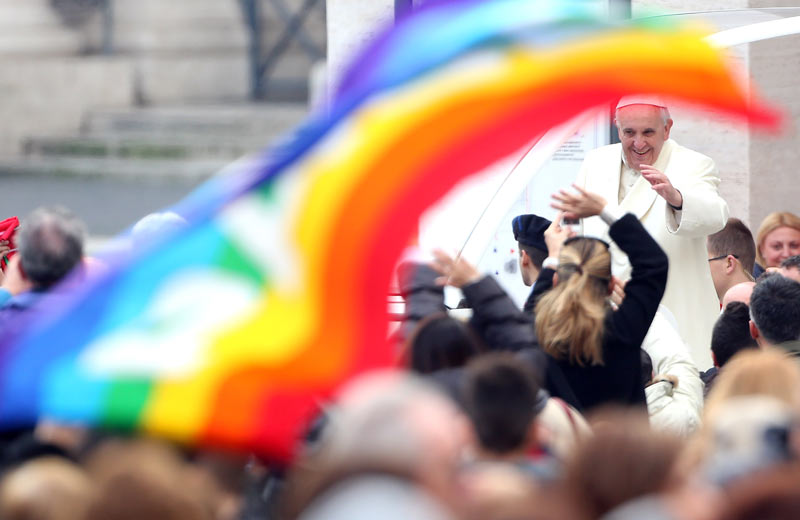
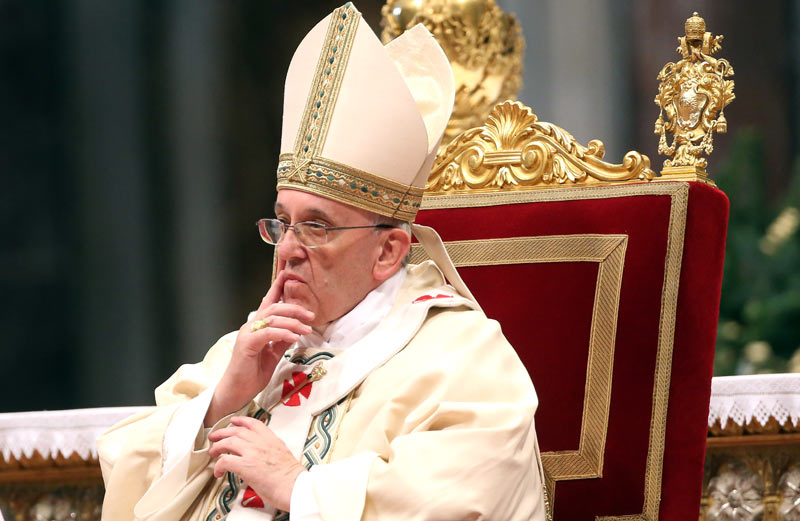
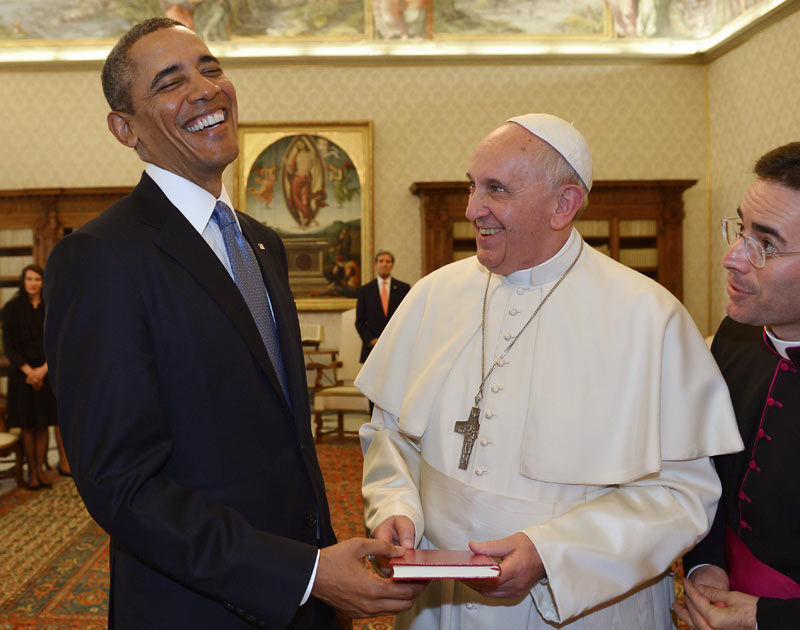
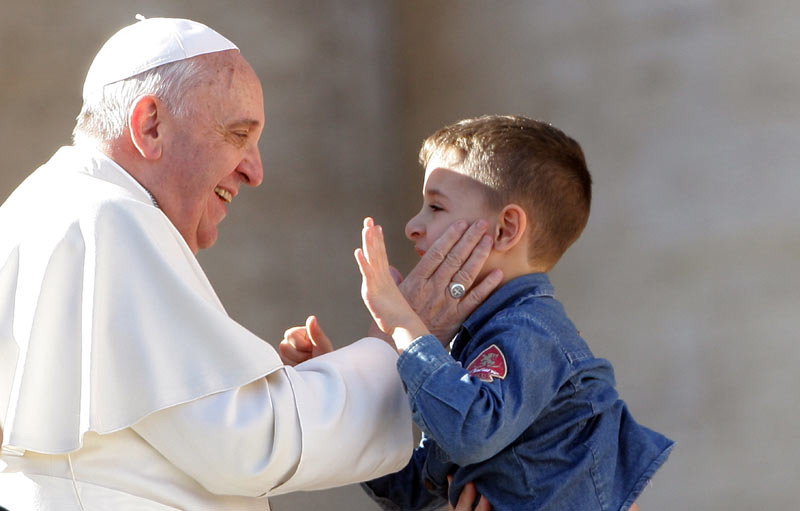
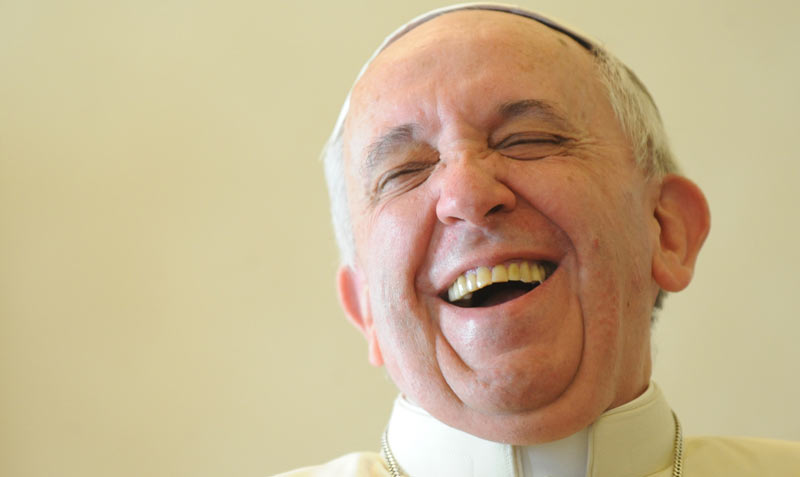
Pope Francis has given Catholic priests the power to forgive women who have had abortions, "representing a significant softening of the church's stance on the issue", says The Independent.
In an apostolic letter to mark the end of the Vatican's holy year of mercy, the Pontiff indefinitely extended a temporary measure he put in place in 2015 allowing priests to absolve women who had terminated a pregnancy.
"I wish to restate as firmly as I can that abortion is a grave sin, since it puts an end to an innocent life," he said. But "there is no sin that God's mercy cannot reach and wipe away when it finds a repentant heart seeking to be reconciled with the Father".
The Week
Escape your echo chamber. Get the facts behind the news, plus analysis from multiple perspectives.

Sign up for The Week's Free Newsletters
From our morning news briefing to a weekly Good News Newsletter, get the best of The Week delivered directly to your inbox.
From our morning news briefing to a weekly Good News Newsletter, get the best of The Week delivered directly to your inbox.
Under canon law, abortion brings automatic excommunication and the Catholic Church has historically viewed it as such a grave sin that a woman could only be absolved by a bishop or a priest given special permission by a bishop.
The practical effect of the Pope's announcement remains unclear, says CNN, but it will "draw attention to the prevailing theme of his papacy: that the doors of the Church must remain open".
The Guardian says the move is "a powerful reminder of Francis's desire to focus his papacy on forgiveness, even as he faces an unprecedented backlash from traditionalists within the church who believe the he has gone too far on sensitive issues such as divorce, and now abortion".
Jesuit priest the Rev James Martin, the editor-at-large at America magazine in New York, described the announcement as "a significant one". It has also been welcomed by Catholic women's groups.
A free daily email with the biggest news stories of the day – and the best features from TheWeek.com
"The Church has had the ability to forgive these women, but many of these women had difficulty forgiving themselves," said Kate D'Annunzio of Rachel's Vineyard, an organisation for women who have had abortions. "This outreach by the Pope is saying, 'Don't isolate yourselves, come back to the church.'"
However, the letter "is likely to agitate the Argentinean pope's toughest critics", adds The Guardian. A papal document on the family called Amoris Laetitia ("The Joys of Love"), which implicitly opened the door for divorced and remarried Catholics to receive holy communion, was widely condemned when it was published in March
Pope Francis quotes: Best advice from the pontiff
21 September
Pope Francis has urged the US and Cuba to persevere with the path of reconciliation during a visit to the Cuban capital of Havana.
The Argentinian Pope has been credited with helping to broker the landmark deal between US President Barack Obama and his Cuban counterpart Raul Castro last December.
Arriving in Havana, Francis remarked on the thawing of relations between the two countries, describing it as a "sign of the victory of the culture of encounter and dialogue, the system of universal growth over the forever-dead system of groups and dynasties".
He added: "I urge political leaders to persevere on this path and to develop all its potentialities as a proof of the high service which they are called to carry out on behalf of the peace and well-being of their peoples, of all America, and as an example of reconciliation for the entire world."
The Italian newspaper La Repubblica claimed the Pope also told journalists on the flight over that he thought "the world is thirsty for peace". He apparently cited wars, migrants and the wave of people fleeing wars and death.
The pontiff has become known for his outspoken and progressive views. See the gallery above for some of his best quotes.
'Coolest Pope ever' more relaxed about abortion and gays
20 September 2013
Pope Francis has a new label - the 'Coolest Pope Ever' - after an interview published yesterday revealed he had resisted pressure to talk about abortion and homosexuality, and urged that the church must not be "obsessed" with these issues.
The 76-year-old Argentinian was interviewed by an Italian Jesuit magazine, the BBC reports. He reviewed the interview before publication - and it was translated by a Vatican team - so there is little room for ambiguity or misinterpretation.
Asked about remarks he made in July that it was not his place to "judge" homosexuals, Francis clarified that he had indeed been talking about all gay men and women, not just about gay priests, as some commentators had thought.
He added: "We cannot insist only on issues related to abortion, gay marriage and the use of contraceptive methods. I have not spoken much about these things, and I was reprimanded for that.
"The teaching of the church [is clear] but it is not necessary to talk about these issues all the time… The dogmatic and moral teachings of the church are not all equivalent."
These remarks don't change the church's teachings, says the New York Times - but they are a dramatic and significant change in tone. Feminist gossip site Jezebel makes a similar point with the headline: "Coolest pope ever urges Catholics to chill out about abortion and gays."
"Turns out, he's not more of the same shit in a different hat,'' he's an ''upgrade'', the site observes. "Think more friendly barefoot youth pastor who can play the guitar, less rigid Nazi gold hoarding paedophileprotector.''
The doctrine of papal infallibility makes it unlikely that the pontiff's seemingly-liberal attitude will draw much overt criticism from within the church. Rev. Frank Pavone, a senior American Catholic who is the US director of Priests for Life, an anti-abortion group, spoke diplomatically to the New York Times.
He told the paper: "Nobody should try to use the words of the pope to minimise the urgent need to preach and teach about abortion."
Francis also distanced himself from his predecessor's focus on doctrine, saying: "The church's pastoral ministry cannot be obsessed with the transmission of a disjointed multitude of doctrines to be imposed insistently…
"Otherwise even the moral edifice of the church is likely to fall like a house of cards, losing the freshness and fragrance of the Gospel."
One revelation in the interview which is receiving less notice than it perhaps deserves is that Pope Francis's favourite film is Federico Fellini's 1954 masterpiece about life in the circus, La Strada.
In 1960, the Vatican condemned Fellini's scandalous La Dolce Vita.
'Who am I to judge?' asks Pontiff when asked about gay priests on trip back to Vatican from Brazil 29/0713
RETURNING from a week-long trip to Brazil, Pope Francis has offered an olive branch to gay men, saying it was not his place to "judge" homosexuals. But he was critical of a 'gay lobby' in the Catholic Church.
Asked about gay priests during his first news conference since being elected, Francis told journalists on board his plane: "If a person is gay and seeks God and has good will, who am I to judge him?
"The Catechism of the Catholic Church explains this very well. It says they should not be marginalised because of this but that they must be integrated into society."
The Pontiff was referring to the Church's official teaching on homosexuality, which accepts that it is a natural orientation and is not sinful – but holds that homosexual acts are wicked, reports the Daily Telegraph.
And he repeated remarks about a 'gay lobby' in the Vatican which have not endeared him to the gay community, saying: "The problem is not having this orientation. The problem is lobbying by this orientation, or lobbies of greedy people, political lobbies, Masonic lobbies, so many lobbies. This is the worse problem."
The Guardian first reported last month that Francis was preparing to tackle a "gay lobby" in the Vatican which it was claimed had organised 'bunga bunga' parties within the Holy See involving 14-year-old male prostitutes.
Labeling this as a gay problem, rather than a paedophile one, sparked anger among many commentators – and may in part explain the ratherlukewarm response to the Pope's comments today.
London-based Gay Star News made the story front-page news – but its short article about Francis's remarks also pointed out that "Francis is opposed to gay marriage and adoption" and mentioned that he has "described homosexuality as a 'defection of human nature'."
Pink News calls today's comments a significant development but reminds its readers that only last month Francis he was warning the French against following "fashionable ideas" in relation to the country's equal marriage law. Three years ago, when still a cardinal, he warned that efforts to legalise equal marriage in Argentina would "confuse and deceive the children of God."
However, the Telegraph makes the point that Francis's remarks suggest he is "much more conciliatory than his predecessor, Pope Benedict XVI, who signed a document in 2005 that said men with deep-rooted homosexual tendencies should not be priests".
While his remarks on gay priests have made the headlines, seeming to signal a break of some sort with the Church's past, Francis also used his press conference to reiterate that there was no chance of women ever becoming priests, saying the "door is closed" on the issue.
Two pope trouble: Benedict heads back to the Vatican 02/05/2013
HISTORY will be made at the Vatican today when Pope Benedict moves into a new home in the city state, not far from the residence occupied by his successor Pope Francis.
Prior to his resignation, 86-year-old Benedict (above) said he would "withdraw into prayer" and live his final years "hidden from the world". But USA Today says there are fears that the "staunchly conservative former pope" could become a "lightning rod" for members of the church who oppose Francis's reforms.
Pope Benedict, who stepped down as head of the Catholic Church in March, is moving into a newly renovated monastery behind Saint Peter's Basilica. He will be welcomed by Pope Francis today and "all eyes will be on Benedict's physical state", says CBC News. "The last time he [Benedict] was seen by the public - 23 March - he appeared remarkably more frail and thin than when he left the Vatican on his final day three weeks earlier."
As soon as Benedict announced his intention to become the first pontiff to resign in 600 years, questions began to "swirl" about the implications of having a "former pope and a current pope living alongside one another in the Vatican". CBC News says Benedict "fuelled those concerns" by choosing to be called "pope emeritus" and "your holiness" rather than "emeritus bishop of Rome". He also raised eyebrows when he chose to continue wearing the white cassock of the papacy.
The potentially awkward situation is compounded by the fact that Benedict's personal secretary, Archbishop Georg Gaenswein, is moving into the monastery with the former pope. Gaenswein will continue to serve as the prefect of the papal household, charged with managing Pope Francis’ schedule.
Benedict's second secretary, Alfred Xuereb, a Maltese priest, has also been serving as a personal aide to the new Argentine pontiff since his election.
Media savvy Pope Francis is 'Ronald Reagan' of religion 19/03/2013
JORGE MARIO BERGOGLIO was often described as a shy man with an aversion to journalists. But as today's inauguration signals the official start of his papacy, there are clear signs Pope Francis "knows how to work the media", says Time.
As a cardinal, Bergoglio preferred to address his congregation rather than reporters, Time says. And when sections of the Argentine media accused him of "silent complicity" during the years when the country was ruled by a brutal junta, his aversion turned to open hostility. "Journalists sometimes risk becoming ill from coprophilia," he said at the time.
Since the conclave elected him Pope, Francis has enjoyed a much warmer relationship with the press. Addressing a group of several thousand journalists from around the world last Saturday, he began: "My dear friends…". There were cheers and several reporters shouted "Viva!".
Francis has the advantage of succeeding Pope Benedict, a man whose "stiff, rather formal" public demeanour reflected his background as an "intellectual, a German theologian steeped in traditional values", says Religion News Service. Compared to Benedict, Francis is fluid, affable and noticeably more modern.
The new Pope's speaking style is "more like that of an actor than a preacher: his tone is intimate, with touches of humour and folksiness, but he never loses command of his audience", says Time. As a speaker, the politician he most resembles is Ronald Reagan. He can also depart from the script when necessary. As he thanked the media for covering the conclave, he looked up and said with a smile: "You've worked, eh? You've really worked."
Like any good media operator, Pope Francis understands the potency of symbolism and how to use it. He declined to sit on the papal throne after he was elected and left the Vatican in a bus with the other cardinals rather than use the papal limousine. "When he appeared on the balcony above St Peter's Square, he wasn't wearing the red papal cape or the customary golden cross, but a simple white cassock and the iron crucifix from his days as bishop."
His understanding of the media extends to damage control. When questions about his role during the junta years "threatened to derail the narrative of renewal" the Vatican responded with "uncharacteristic speed and force", says Time. A statement described the accusations as "slanderous, defamatory and motivated by leftist anticlericalism". The story was nipped in the bud and the celebratory mood resumed.
Dennis Redmont, a professor of international media at the University of Perugia, is impressed. Pope Francis has the chance to become a "symbol that resonates", he says. "I think he'll be less Ratzinger and more Dalai Lama." ·
Pope turned to God after snub by sweetheart Amalia Damonte 15/03/2013
JORGE Mario Bergoglio, the man this week elected as the first Latin American pope, reportedly turned to religion after he was spurned by his childhood sweetheart when they were both just 12 years old.
According to 76-year-old Amalia Damonte, Pope Francis once declared "If I can't marry you, I'll become a priest" after she rejected him during their childhood in Buenos Aires. "Luckily for him, I said no", she joked.
Speaking from her home, four doors down from where Francis grew up in Flores, Argentina, Damonte revealed her parents had kept the two apart because they disapproved of their budding romance.
"When we were young, he wrote me a letter and I didn't reply to him," she told the Argentinean press. "My father had hit me because I had dared to write a note to a boy."
Damonte's revelation came as the sister of the 266th pontiff, María Elena Bergoglio, said she was concerned her brother would face "infinite loneliness" in his new role.
She told the Daily Telegraph Francis had jokingly said "no, please no" at the prospect of being the next Pope. "I didn't want him to become Pope because he's going to be very far away and second because it is such a large responsibility. But I am also totally proud that he is the new Pope - because he's the first from outside Europe, because he's Latin American, he's Argentine and he's my brother," she said.
Despite his apparent reluctance, Francis, 76, was elected the Catholic Church's leader on Wednesday, replacing 85-year-old Benedict, who stepped down last month. Bergoglio inherits a church wrestling with an array of challenges that intensified during Pope Benedict's tenure - from growing competition from evangelical churches in the Southern Hemisphere to a priest shortage and a sexual abuse crisis.
Pope Francis: why critics say he's the wrong man for the job 14/03/2013
POPES do not enjoy honeymoon periods, it seems. Just hours after being elected as the Catholic Church's first South American leader, Pope Francis has been attacked over a range of issues and alleged misdeeds. Here's what his critics are saying:
He believes the Falkland Islands belong to Argentina During a Mass held in Buenos Aires on April 2 last year marking the 30th anniversary of the Falklands war, Jorge Mario Bergoglio called for the vindication of all of those who fought against the British. Bergoglio said Argentina had been "usurped" by the British. His words suggest that he is "politically aligned" with Argentine president Cristina Kirchner, says The Guardian, despite reports of "frosty relations" between the presidency and the Argentinian church.
He strongly opposes gay marriage and gay adoption Pope Francis has been described as "progressive" on issues of sexuality, but it's hard to see why, say his critics. He is a staunch opponent of abortion, though he has approved of contraception "as a means of preventing disease". In 2010, he wrote a letter to the priests of the Archdiocese of Buenos Aires attacking gay adoption and moves to allow same-sex marriage. Gay adoption is a form of "discrimination" against children, he wrote, and a proposed bill to allow gay marriage was "an attempt to destroy God's plan".
He's not qualified for the job There were few voices of dissent when Bergoglio was elected as Pope, but journalist Marcelo Gonzalez from the Argentine newspaper Panorama Catolico Internacional was utterly indignant. "The Horror! Of all the unthinkable candidates, Jorge Mario Bergoglio is perhaps the worst," he wrote. "Not because he openly professes doctrines against the faith and morals, but because, judging from his work as Archbishop of Buenos Aires, faith and morals seem to have been irrelevant to him."
He engaged in a "complicit silence" when Argentina was ruled by a brutal junta Bergoglio was head of Argentina's Jesuit order from 1973 to 1979. As a result, he was part of the Catholic hierarchy that failed to "openly confront" the 1976-1983 military junta while it was "kidnapping and killing thousands of people in a 'dirty war" to eliminate leftist opponents", says the London Evening Standard. The new Pope has twice invoked his right under Argentine law to refuse to appear in open court in trials involving torture and murder by the junta and the theft of babies from detainees. His critics say he"s motivated by his desire to protect the Church"s image. Not so, says his official biographer, Sergio Rubin. Far from being complicit, the new Pope "took major risks" saving so-called "subversives" during the 1976-1983 dictatorship.
He withdrew support for two priests who were kidnapped and tortured by the junta in 1976 The most serious accusation against Bergoglio involves Orlando Yorio and Francisco Jalics, two young priests who were working in the Buenos Aires slums. Bergoglio says he told them to stop their work for their own safety; Yorio says the Jesuit leader "effectively delivered them to the junta's death squads by declining to publicly endorse their work". The priests were eventually dropped off blindfolded in a field after a "harrowing helicopter ride". Rubin insists that Bergoglio went to "extraordinary" lengths to save the two priests, even making a personal appeal to the feared dictator Jorge Videla.
At last, a Pope from continent where most Catholics live 14/03/2013
ARGENTINA'S Jorge Mario Bergoglio, the first Latin American Pope, will face an "uphill struggle" to inspire the faithful. There are also questions about the 76-year-old's involvement with the junta that ruled Argentina 30 years ago. Here's what leading commentators are saying this morning about Pope Francis:
Christopher Lamb in the Tablet: "It is not a cliché to say the election of Pope Francis was a jaw-dropping surprise. The first Jesuit and the first Latin American to be elected to the Chair of St Peter. When his name was read out the drenched crowd in St Peter's Square fell silent. Not because they were surprised but because they had no clue who he was."
Rachel Donadio in the New York Times: "In many ways, Cardinal Bergoglio — the first to take the name Francis, after the beloved saint who took a vow of poverty — seems to be the anti-Benedict. He is a warm, pastoral figure known as a good communicator, one who might have more success reversing the church's sagging fortunes than did Benedict, even without a major change in church doctrine. It seemed almost as if the cardinals were trying again."
Editorial in The Catholic Herald: "The election of Cardinal Jorge Mario Bergoglio as Pope was a surprise. But perhaps, with hindsight, it shouldn't have been. According to unofficial accounts he came second in the conclave balloting to Cardinal Joseph Ratzinger in 2005. But somehow he kept out of the media spotlight in the run-up to this conclave, leading many to strike him off the lists of papabili hastily pulled out of journalists' drawers when Pope Benedict dramatically abdicated last month."
Andrew Brown in the Guardian: "The election of a Latin American Jesuit would have been unthinkable 30 years ago. The choice of Bergoglio shows a decisive shift in the church's centre of gravity away from Europe and towards the continent where most Catholics live, and where the challenges to the church are rather different to those in Europe."
Damian Thompson in the Daily Telegraph: "His challenge is clear... In many parts of the world, Roman Catholicism has become almost synonymous with sexual abuse and its concealment. The crisis is as bad as it was in 2005, when Benedict was elected, although most of the crimes are now more distant historical events."
Uki Goni and Jonathan Watts in the Guardian: "The news of Latin America's first pope was clouded by lingering concerns about the role of the church – and its new head – during Argentina's brutal military dictatorship. The Catholic church and Pope Francis have been accused of a complicit silence and worse during the 'dirty war' of murders and abductions carried out by the junta that ruled Argentina from 1976 to 1983."
Jerome Taylor in the Independent: "In the days running up to this week's papal conclave I did a brief ring-round of Catholics about what the Church needed from the man who would become the 266 Pope. The most eloquent response came from an elderly priest who used just two words: 'A miracle'."
-
 How the FCC’s ‘equal time’ rule works
How the FCC’s ‘equal time’ rule worksIn the Spotlight The law is at the heart of the Colbert-CBS conflict
-
 What is the endgame in the DHS shutdown?
What is the endgame in the DHS shutdown?Today’s Big Question Democrats want to rein in ICE’s immigration crackdown
-
 ‘Poor time management isn’t just an inconvenience’
‘Poor time management isn’t just an inconvenience’Instant Opinion Opinion, comment and editorials of the day
-
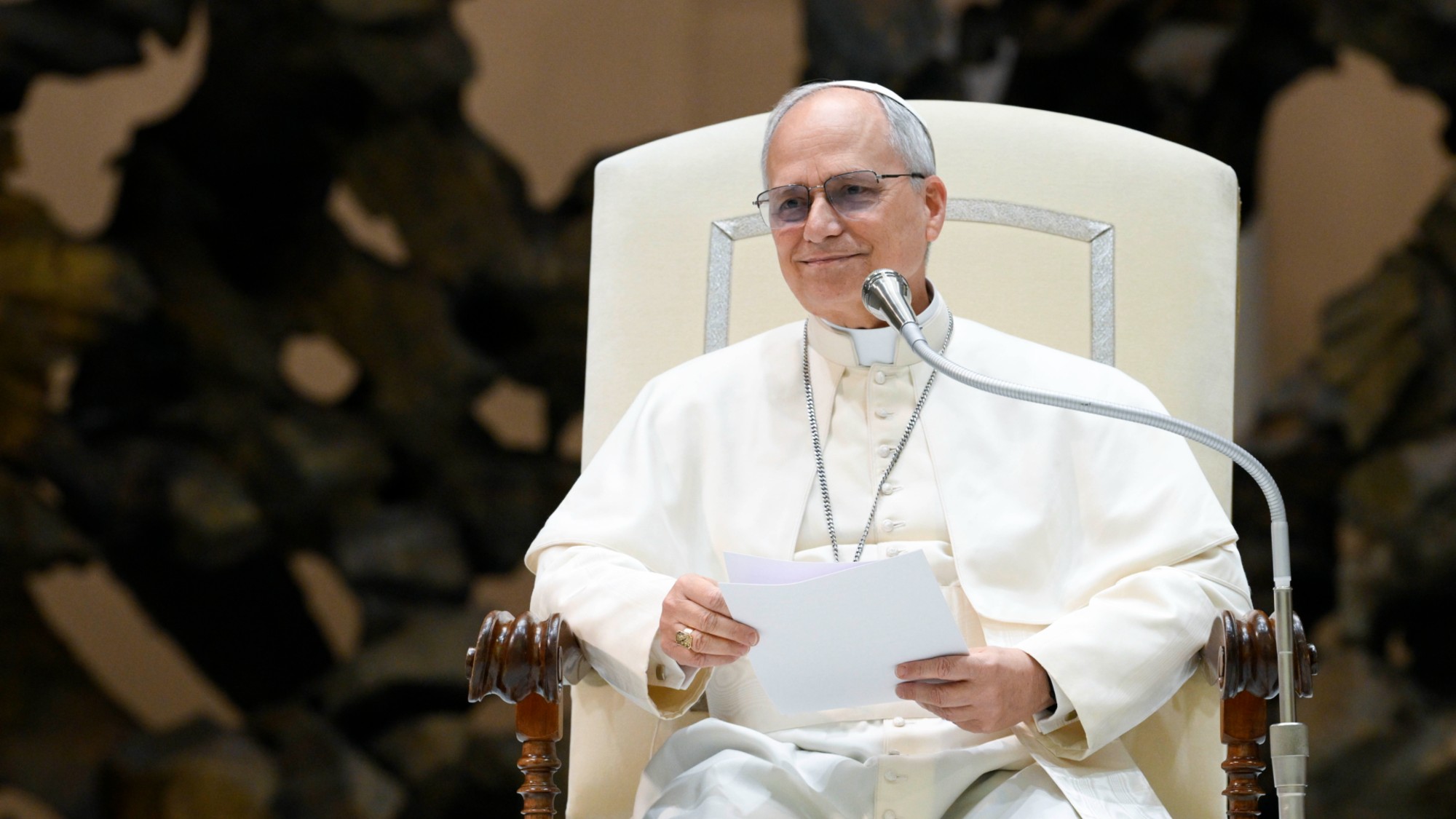 Where the new Pope Leo XIV stands on social issues
Where the new Pope Leo XIV stands on social issuesThe Explainer The first American pontiff is expected to continue some of his predecessor's work
-
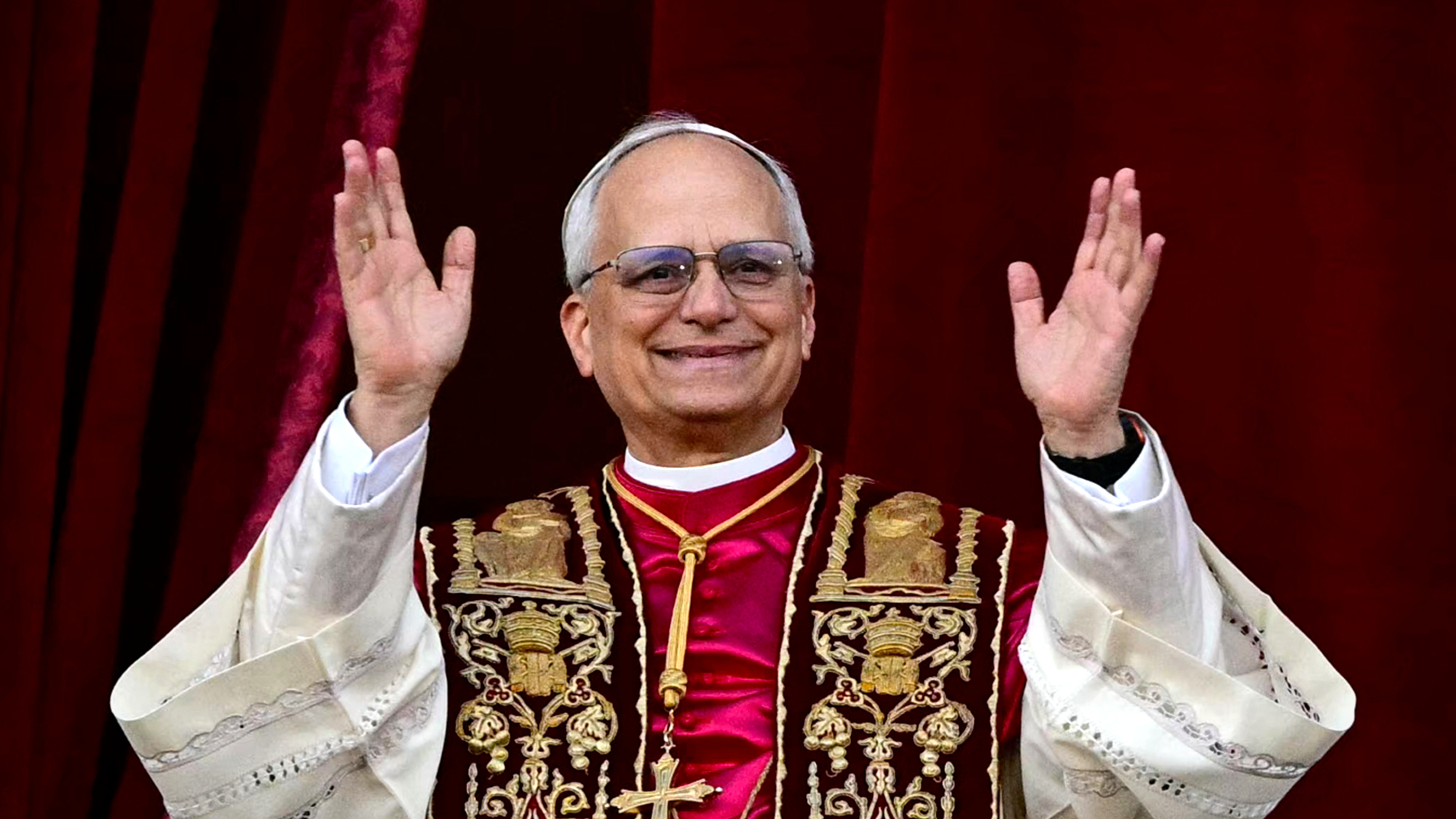 Prevost elected first US pope, becomes Leo XIV
Prevost elected first US pope, becomes Leo XIVspeed read Cardinal Robert Francis Prevost is a Chicago native who spent decades living in Peru
-
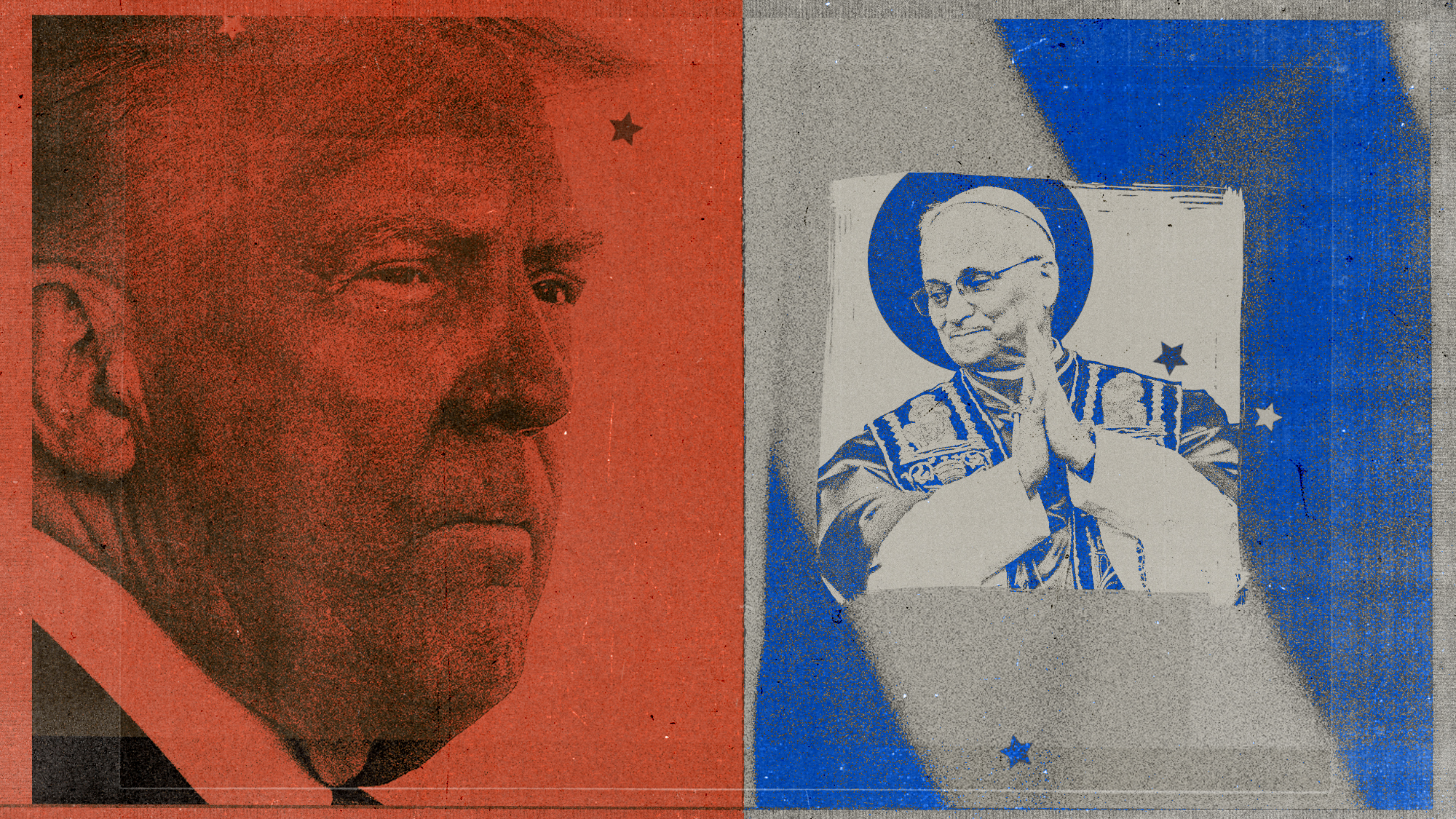 Leo XIV vs. Trump: what will first American Pope mean for US Catholics?
Leo XIV vs. Trump: what will first American Pope mean for US Catholics?Today's Big Question New pope has frequently criticised the president, especially on immigration policy, but is more socially conservative than his predecessor
-
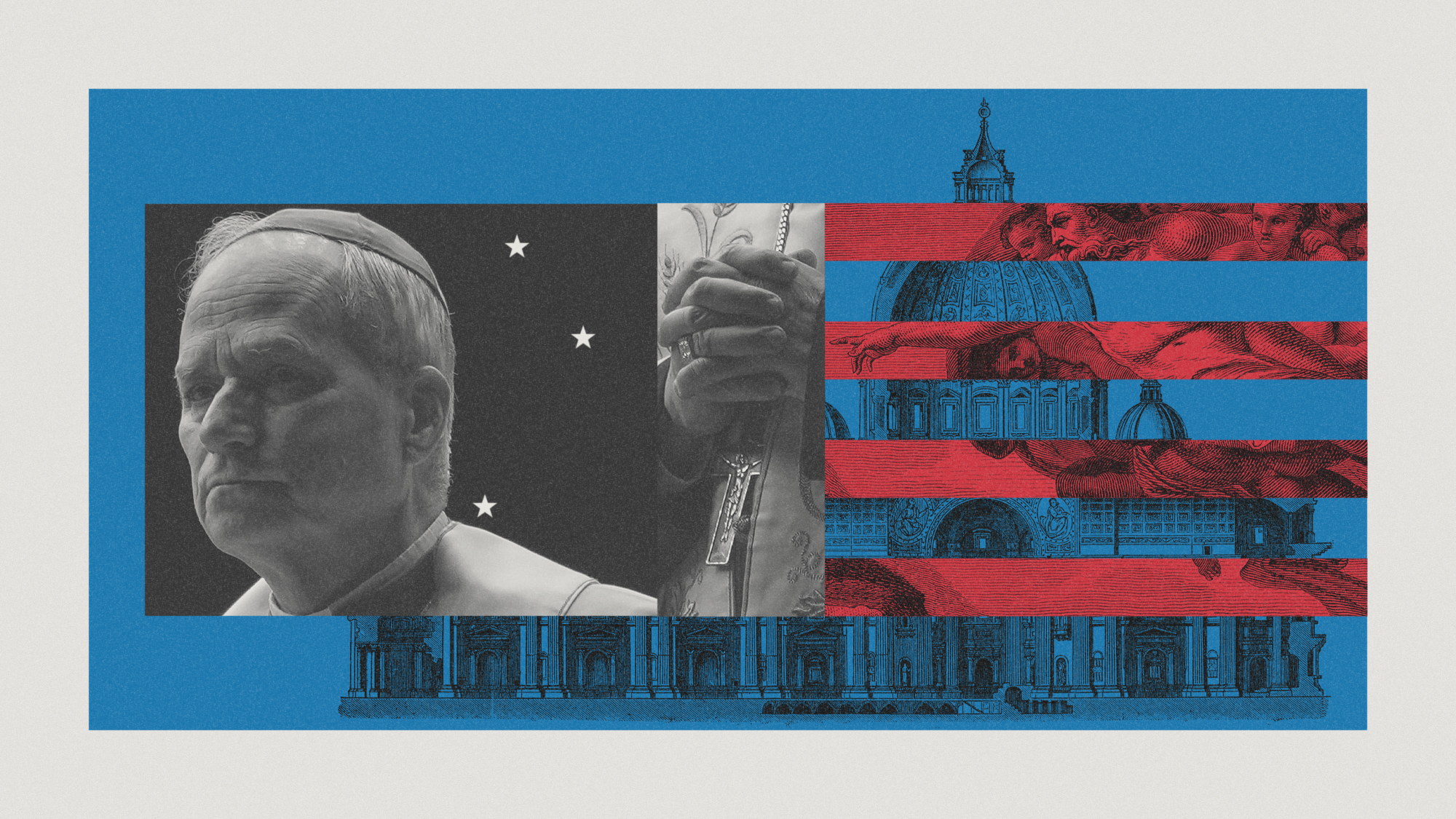 Could the next pope be an American?
Could the next pope be an American?Today's Big Question Cardinal Robert Francis Prevost is a possible 'superpower pope'
-
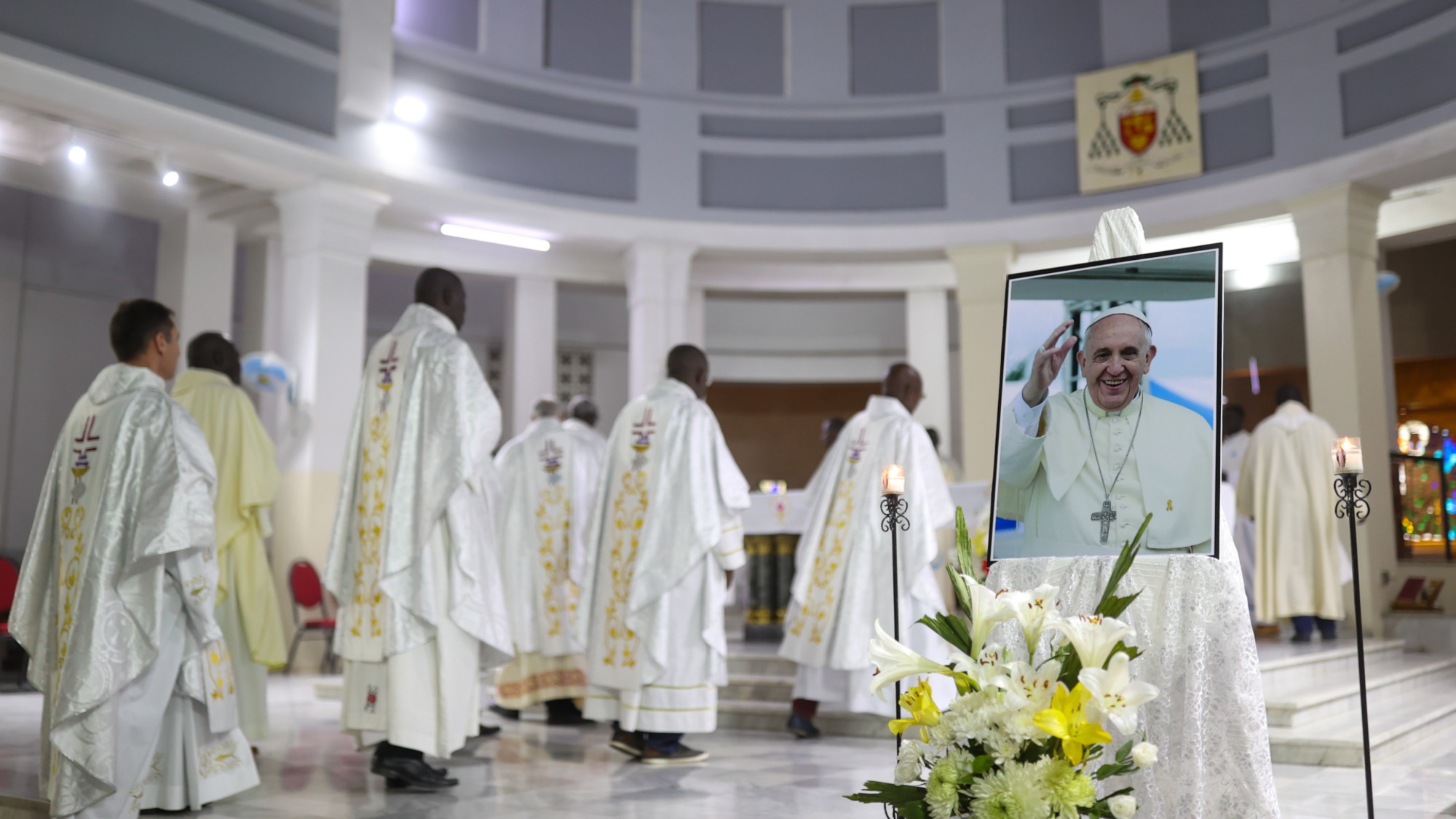 What would an African pope mean for the continent?
What would an African pope mean for the continent?Today's Big Question The Catholic Church has never had a pope from Africa in its modern history
-
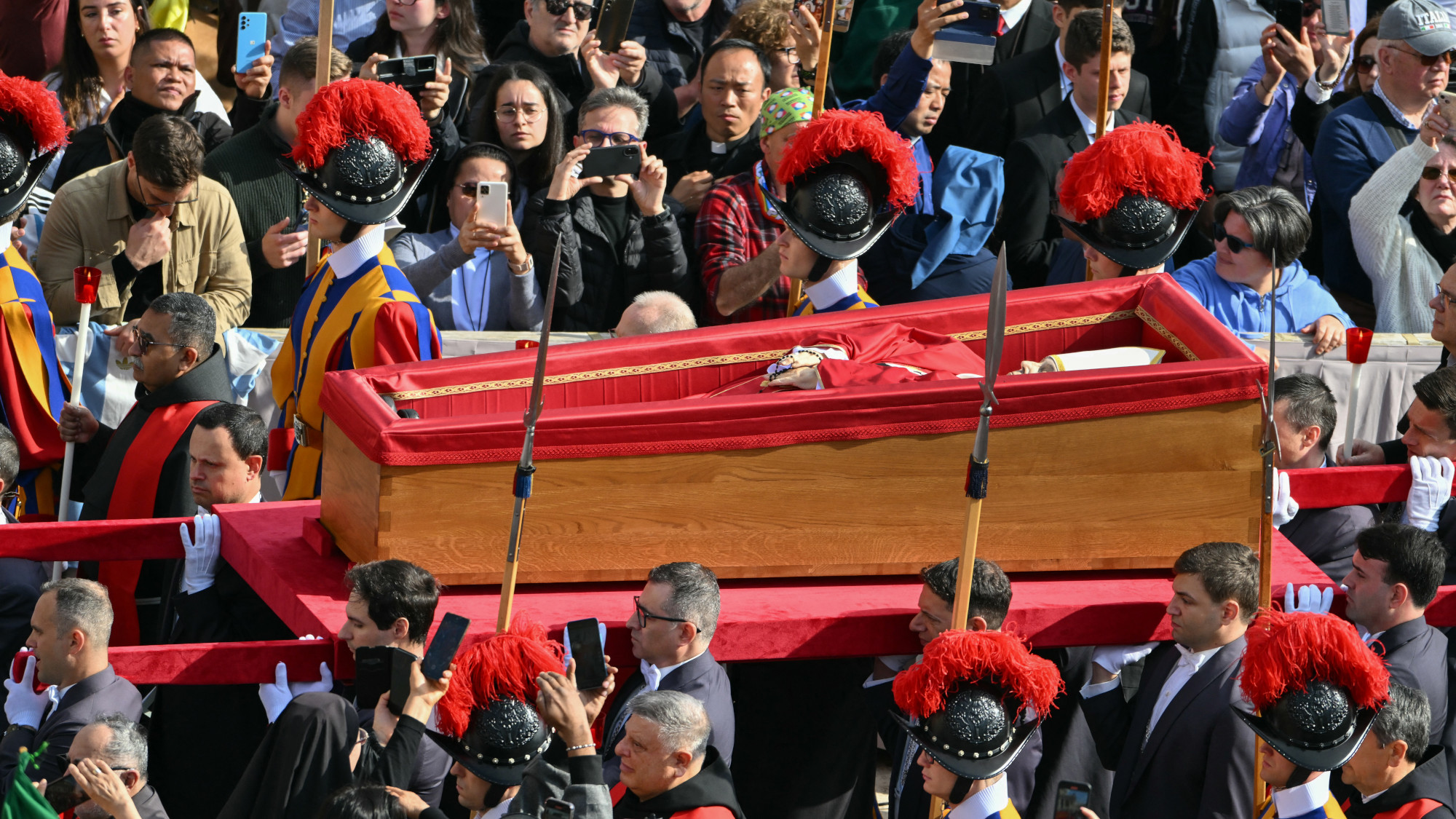 Millions mourn as Vatican prepares for transition
Millions mourn as Vatican prepares for transitionFeature Pope Francis, the pontiff who challenged tradition, leaves the Catholic Church at a crossroad to choose his successor
-
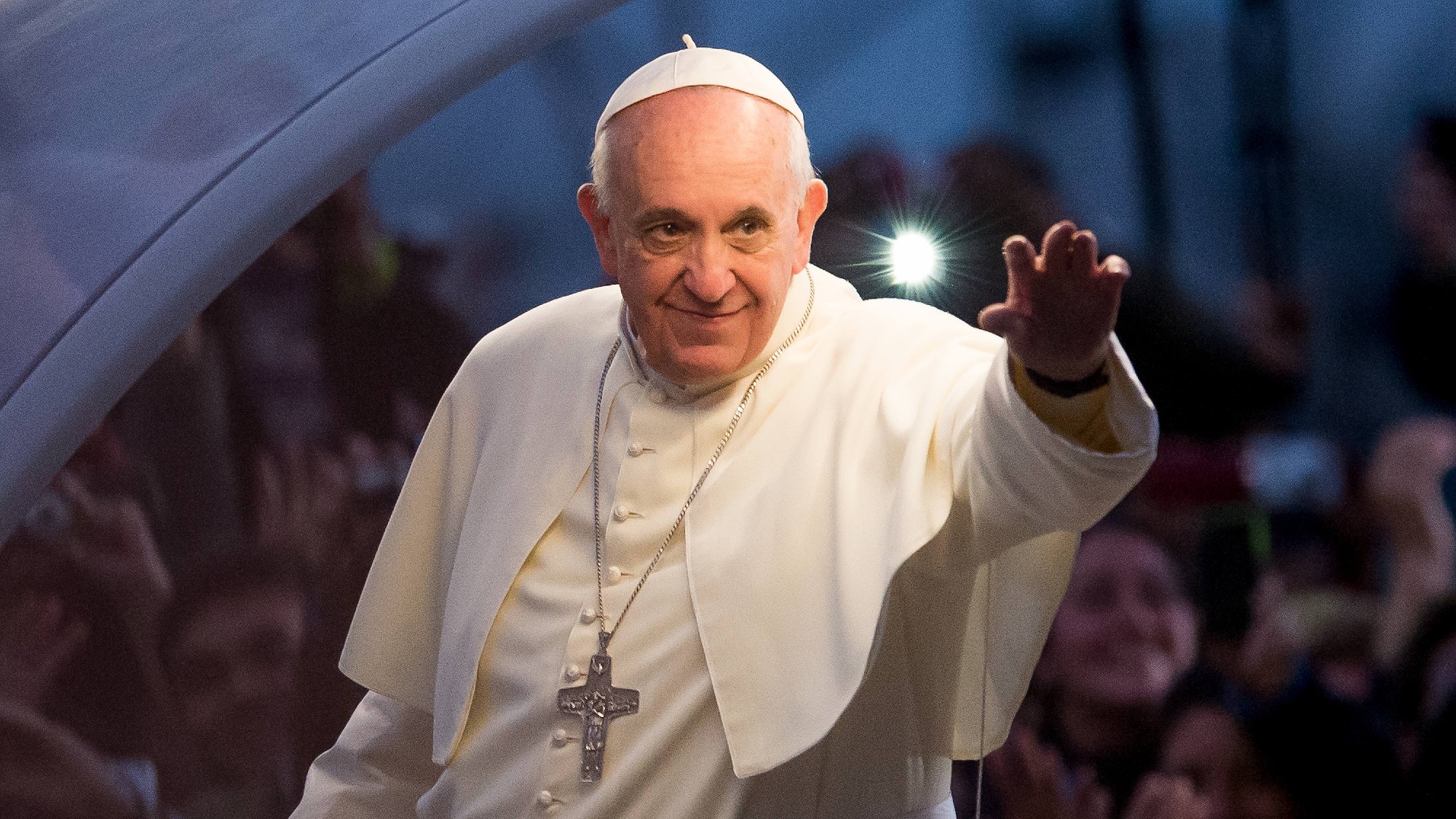 Pope Francis obituary: modernising pontiff who took the Gospel to the margins
Pope Francis obituary: modernising pontiff who took the Gospel to the marginsIn the Spotlight For traditionalist Catholics, Jorge Bergoglio's reforms often seemed to go too far; progressives, though, will demand more of his successor
-
 How will the next pope change the Catholic Church?
How will the next pope change the Catholic Church?Talking Points Conclaves can be unpredictable